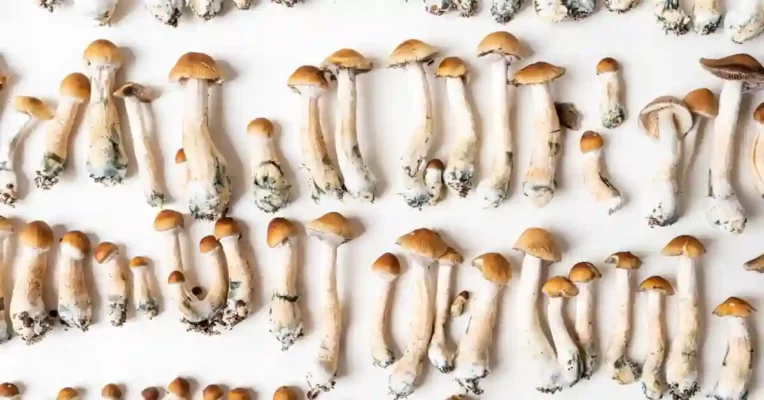Uncategorized
Seattle Decriminalizes Psychedelics
Introduction
In 2019, Denver became the first city in the United States to decriminalize psilocybin mushrooms. Since then, several other cities across the country have followed suit, including Oakland, Santa Cruz, and Ann Arbor. The latest city to join the movement is Seattle. On February 22, 2021, the Seattle City Council passed a resolution that effectively decriminalizes psychedelic substances, making it the largest city in the United States to take such a step. In this blog post, we will explore what this means for Seattle and the broader movement to decriminalize psychedelics.
What is Psychedelic Decriminalization?
Psychedelic decriminalization refers to the act of removing criminal penalties for the possession, use, and cultivation of psychedelic substances such as psilocybin mushrooms, LSD, and ayahuasca. Decriminalization does not mean that these substances are legal, but it means that law enforcement will not prioritize enforcement of laws against them. Instead, the focus will shift towards harm reduction, education, and public health.
What Led to Seattle’s Decision to Decriminalize Psychedelics?
The Seattle City Council’s decision to decriminalize psychedelics was a result of years of advocacy by grassroots organizations, including Decriminalize Nature Seattle, the People’s Harm Reduction Alliance, and Real Change. These groups have been working tirelessly to raise awareness about the therapeutic potential of psychedelics and the harms caused by criminalizing their use.
The COVID-19 pandemic and the resulting mental health crisis also played a significant role in Seattle’s decision to decriminalize psychedelics. In a press release, Seattle City Councilmember Andrew J. Lewis said, “COVID-19 has exacerbated mental health and addiction crises that have long plagued our communities. It’s time to stop criminalizing these conditions and move toward a more comprehensive, public health-centered approach.”
What Does Decriminalization Mean for Seattle?
The passing of the resolution effectively means that Seattle police will not prioritize the investigation and arrest of individuals for the possession and use of psychedelic substances. It will not allow for the sale or commercial production of these substances, but it will remove criminal penalties for their possession and use. This move has significant implications for Seattle’s communities and could pave the way for other cities across the country to follow suit.
What are the Implications of Decriminalizing Psychedelics?
The decision to decriminalize psychedelics has several potential implications for Seattle and other cities in the United States. Some of these include:
1. Access to Therapeutic Benefits
Decriminalization can increase access to the therapeutic benefits of psychedelics for individuals suffering from mental health conditions such as depression, anxiety, and PTSD. In a clinical setting, psychedelics have been shown to be effective in treating these conditions, but their criminalization has hindered access to them.
2. Reducing Harmful Stigma
Decriminalization can help reduce the harmful stigma associated with psychedelic use, which has been perpetuated by decades of propaganda and misinformation. By reducing the criminal penalties for their use, individuals may feel more comfortable seeking treatment and support.
3. Redirecting Law Enforcement Resources
Decriminalization can redirect law enforcement resources towards more pressing issues such as violent crime and drug trafficking. This shift can help reduce the burden on the criminal justice system and free up resources for other public health initiatives.
4. Generating Revenue
Decriminalization can also generate revenue for the city through taxes and fees. While the sale and commercial production of psychedelics will still be illegal in Seattle, the city can levy taxes on the substances if they are legalized in the future. This revenue can be used to fund public health initiatives and harm reduction efforts.
5. Fostering Scientific Research
Decriminalization can also help foster scientific research into the therapeutic benefits of psychedelics. The criminalization of these substances has hindered research in this area, but decriminalization can open up opportunities for further investigation into their potential benefits.

What are the Potential Risks of Decriminalizing Psychedelics?
While decriminalizing psychedelics has several potential benefits, there are also some risks to consider. These include:
1. Increased Access to Psychedelics
Decriminalization may increase access to psychedelics, which could lead to an increase in their use. While the therapeutic benefits of these substances are well-documented, their use can also be harmful, particularly when used improperly or in unsupervised settings.
2. Lack of Regulation
Decriminalization does not mean that psychedelics are legal, and as such, there is no regulation on their production, distribution, or use. This lack of regulation can lead to issues such as contaminated substances or individuals taking unsafe doses.
3. Misuse of Psychedelics
Decriminalization may also lead to the misuse of psychedelics, particularly among young people. This can be a concern, particularly given the potential harms associated with psychedelic use.
Conclusion
Seattle’s decision to decriminalize psychedelics is a significant step towards a more comprehensive, public health-centered approach to drug policy. Decriminalization has several potential benefits, including increased access to therapeutic benefits, reduced stigma, and redirecting law enforcement resources towards more pressing issues. However, there are also risks to consider, including increased access to psychedelics, lack of regulation, and misuse.
It will be interesting to see how this decision impacts Seattle and other cities across the country in the coming years. Will other cities follow suit? Will there be a push towards legalization of these substances? Only time will tell.


